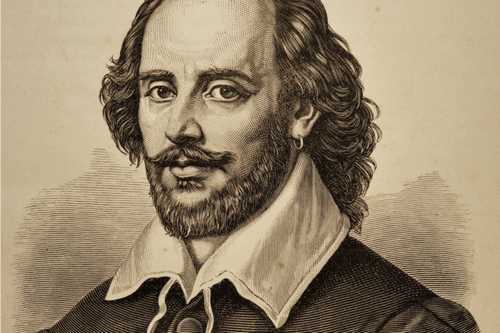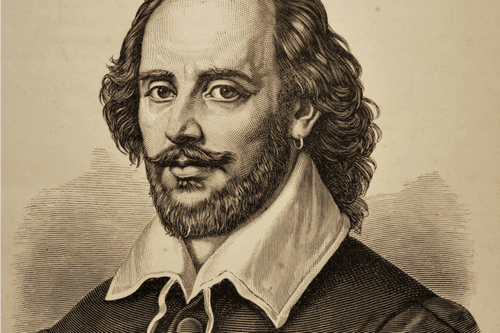It is difficult to take a journey through the history of literature and choose just a few names. Even so, we share a short personal list of the seven writers par excellence.
Drawing up a ranking of the most important writers in history is not an easy task. You can try to objectively evaluate the quality of the works, but in the end there will always be room for personal taste.
In this case, the writers were selected based on the quality of their works, their popularity, their influence and legacy in the history of literature.
The most important writers in history
1. Dante Alighieri / Italy (1265- 1321)
Appreciated for his great spirituality, Dante is nicknamed “the Supreme Poet”but he was also a skilled prose writer, literary theorist, philosopher and political thinker.
His iconic work is The divine Comedy (1304-1321), essential for the transition from medieval to Renaissance thought and, of course, one of the classics of universal literature.
The work revolves around the search for Beatrice, the beloved woman, up to Paradise. To do this she will have to move away from the dark forest and follow Virgil, who will be her spiritual guide to enter the circles of hell.
2. William Shakespeare / England (1564-1616)
As Ben Jonson (Shakespeare’s contemporary writer) announced: “William Shakespeare does not belong to a single age, but to eternity”. And how right he was, because, as confirmed by a research conducted in 2014 by the University of Jaén, its influence reached China at the hands of the playwright Cao Yu.
In addition to the sonnets, wrote fourteen comedies, ten tragedies and ten historical plays. His work is the subject of analysis in many universities, where students can take courses entirely dedicated to his literary production.
3. Miguel de Cervantes / Spain (1547-1616), one of the most important writers in history
Also known as “El monco de Lepanto”, is the author of the famous opera Don Quixote, the most edited and translated book in several languages after the Bible. Although he has also written a large number of novels, he will be forever attached to this character.
The brilliant noble Don Quixote of La Mancha tells the adventures of Alonso Chisciano, a noble who ends up going crazy after reading so many chivalrous novels and believing himself a knight errant.
His story was the key that opened the doors to metaliterature through parody. Thanks to it, moreover, the history of Spain is still alive today; her pages accurately and in detail describe many customs of the time.
4. Charles Dickens / England (1812 – 1870)
He is considered to be one of the best English novelists of all time thanks to titles like Oliver Twist (1838), Christmas carol (1843) and Little Dorrit (1857).
These are some of the most emblematic works of Charles Dickens that demonstrated his struggle for the most disadvantaged social classes of the Victorian era, his relentless criticism of poverty and his enormous empathy towards man.
On the other hand, for many it was the author who, with more success and emotion, he knew how to transcribe the meaning of Christmas into words.
6. Franz Kafka / Czech Republic (1883 – 1924)
His work is a fusion of fantastic and realistic elements that awakened consciousness at a time when alienation due to work was the order of the day.
Many readers have identified with Gregor Samsa’s story, told in The metamorphosis (1915), which turns into a creepy insect during the night.
As a good expressionist and existentialist, his literary creations focus on the condition of contemporary man, anguish, guilt, frustration or loneliness, among others.
5. William Faulkner / United States (1897-1962)
Awarded the Nobel Prize in Literature, Faulkner was one of the best authors of experimental novels. Furthermore, he was the father of many contemporary authors, such as Mario Vargas Llosa, Juan Rulfo, Ana María Matute or the great Hispanic-American existentialist Juan Carlos Onetti.
His final recognition is due to his fourth novel, The scream and the fury (1929), which features a polyphony of voices with several narrators demonstrating Faulkner’s extraordinary ability to literally recreate the characteristics of the human mind, even the most anomalous.
7. Jorge Luis Borges / Argentina (1899 -1986) among the most important writers
One of the key figures for Spanish and universal language literature is Borges. Respect for him for the confluence of opposites with the Argentine presence in the tango was only the beginning of the writing career of a child born almost with a book in his hand.
Thus was born The Library of Babel (1941) and over fifty short stories, essays, poems, which allow readers (be they mathematicians, philosophers, chemists or philologists) to enter Borges’ labyrinth to admire life with other eyes and develop your own theory about it.
In this sense, the blindness caused by a genetic disease gave him the secret keys to deal with various topics related to philosophy, existentialism, the universe, and expressed through rationalism.
The most important writers in history must be discovered through their works
The authors who have marked a before and after in world literature cannot be summed up in a short list. In fact, works like Alla should not be forgotten search for lost time by Proust, Crushes it by Camus, i Stories by Poe or L ‘Ulysses by James Joyce.
And, of course, also the female writers who were not appreciated in due course: Emily Dickinson and her intimate poems, Virginia Woolf with Una room all to himself and Mary Shelley with Frankenstein are just some of the most influential figures on the world literary scene.
We find consecrated writers even in a more recent past such as Philip Roth, Paul Auster, Murakami, Saramago, Zafón or JK Rowlinga writer who has made inroads into the hearts of thousands of young people, and not only, from all over the world.
You might be interested in …


